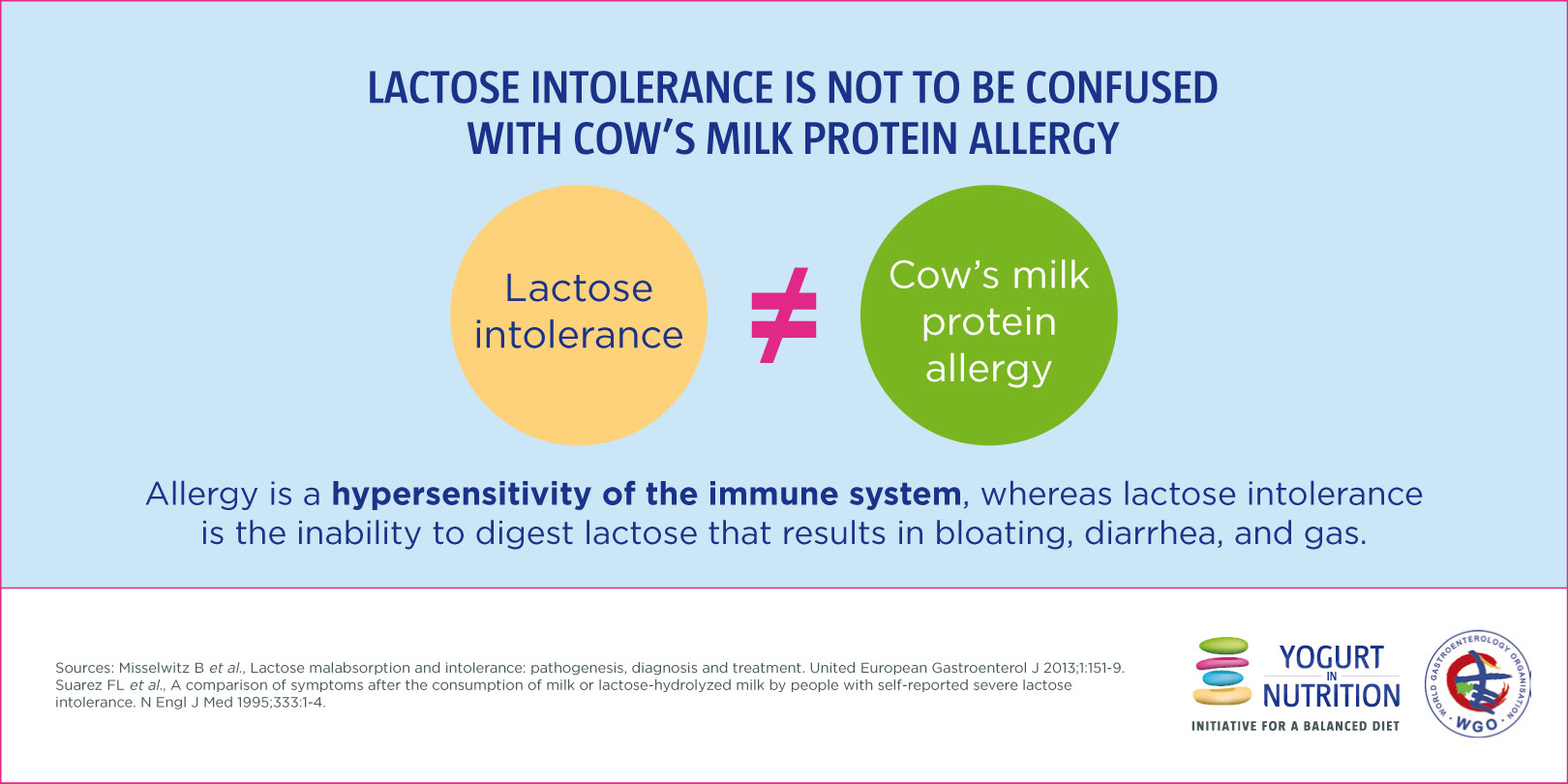No. Allergy is a hypersensitivity of the immune system to some elements in the environment that causes no to little problem to most people. Common food allergies are to peanuts, cow’s milk, eggs, tree nuts, fish, shellfish, soy and wheat. In cow’s milk allergy, the immune system overreacts to one or more proteins contained in cow’s milk such as caseins and whey proteins. Symptoms include hives, swelling, nausea and wheezing and can arise within an hour and even up to 72 hours after drinking cow’s milk.
Lactose intolerance is related to lactose, which is not a protein but a type of sugar naturally found in milk and dairy. It’s the inability to digest lactose that results in bloating, diarrhea, and gas. Lactose is not a milk protein but a sugar and it is not targeted by the immune system.
People suffering from cow’s milk allergies should avoid milk and dairy foods whereas people with lactose intolerance should not avoid milk and dairy foods but rather consume dairy in modest amounts, up to 12g in one intake or up to 24 g, preferably in small amounts across the day, during or at the end of a meal (not at beginning), without symptoms. Lactose intolerants are also recommended to consume different forms of dairy such as yogurt, which facilitates lactose digestion, and some cheeses like aged-cheeses, which contain very low to no lactose.





